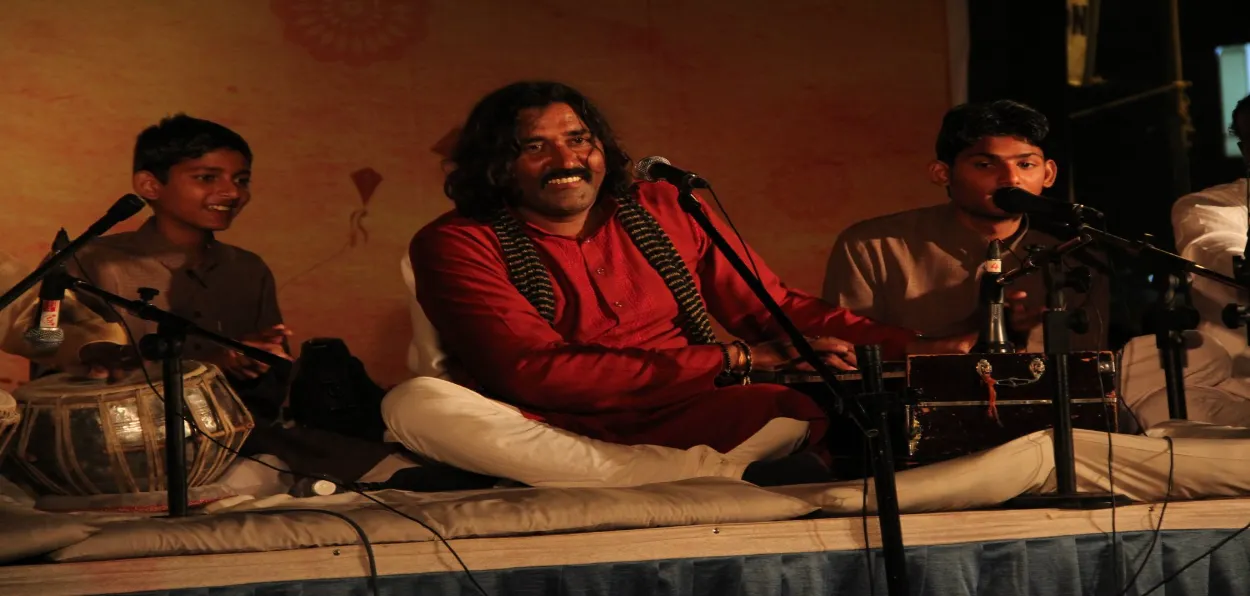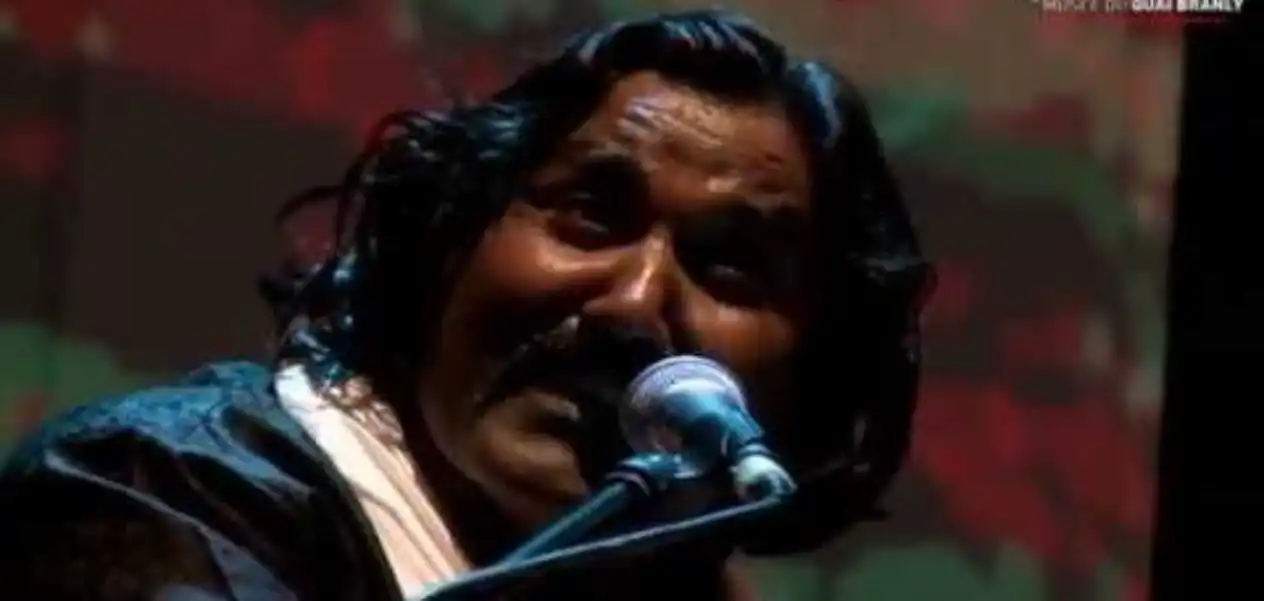
Sarang Khanapurkar/Pune
Mukhtiyar Ali of Bikaner, Rajasthan, hails from the nomadic Mirasi community which has preserved its tradition of Sufi singing for 800 years. He is one of the most famous Sufi singers in the country known for his soulful rendition of the lyrics of Kabir, Bhule Shah, and Meera.
Interestingly, Mukhtiyar Ali is more popular in South India. Some time ago during his visit to Pune, Maharashtra, Awaz-the Voice caught up with him for a brief interview. Excerpts:
What is special about Sufi music?
No matter which style one sings in, music connects people. However, the specialty of folk-Sufi music is to connect people's hearts. In Sufi music, this aspect is emphasized even more. We can learn how to create a sense of love and closeness among people through our songs and music. Our saints and mystics like Kabir, Meera, and Baba Bulhe Shah have taught us this and we try to convey this message through music.
Sufi music has been a tradition for many centuries. But even today this music is very popular. You will find Sufi music and dance used in Hindi movies too. The real joy lies in protecting our traditions. These traditions and their founder Saints have taught us that humans are one race. If I can pass this tradition on to the next generation, I will consider myself lucky
You have a deep love for Kabir. What is the reason for this?
Sant Kabir never compromised in his life. When he felt that people needed to be given a message, he gave it in clear terms. He felt no fear while doing this. This is why I respect Kabir so much.
How was your experience working on a film about him?
A documentary on Kabir was released a few years ago. It was called Had-Anahad. This movie became quite popular and the filmmaker became famous in India and abroad. In it, I speak about Sufi music. As a folk artist, I spoke my mind in front of the camera. At that time I did not understand what we were talking about. But when I watched the film, I realized that I had said many great things during the conversation. I felt the great responsibility of living up to what I had said. This made me an introvert.
 Mukhtiyar Ali singing
Mukhtiyar Ali singing
However, I felt that we are only artists singing Kabir, Baba Bulhe Shah. I realized that film is not my forte. I reset my boundaries. I decided not to dream big. Working in films is a different experience. I have worked in Finding Fanny and a few other films but, I feel that this is not my way. I want to maintain my 26-generation tradition.
If I go to Bollywood, who will maintain my family’s tradition? I will only be happy if I can pass this tradition on to the next generation. So I decided to sing Sufi songs only. I will sing for films only when I have to sing the words of saints like Kabir, and Baba Farid, otherwise not.
You also worked with French composer Mathieu Duplessis. What is the difference between Western music and our music?
I worked with Du Plessis for 'Finding Fanny' and an album. People loved it, but I felt our music was more solid. The basis of our music is classical. I believe Sufi music is also classical. The purpose of Western music is to attract crowds of people and gather a large audience. On the contrary, our music soothes the mind. So it connects us to God.
Is your next generation taking music lessons from you?
Yes, I teach my son everything I learned from my father. However, there is a big difference in learning between us. The boy feels that no one listens to his old songs anymore. So he wants to become a professional singer. But I enjoyed life through singing. If he is lucky, he will be able to experience the same happiness.
You continue to live in your native village in Rajasthan; why not shift to a big city?
The fun of life that one can have in one’s native village can never be found anywhere else. I am amidst people whom I grew up with, who I learned from and I love being with them. Living in the city is not my nature. Besides, I'm not that big a person to live in a big city.
ALSO READ: Dilli Gharana defines music as the highest form of meditation
What are the challenges that Sufi music faces today?
It’s a reality that Sufi music is very popular as it has great power to connect people. But it is becoming increasingly difficult to preserve this music in its original form. This is because music trends are changing fast. It’s changing according to people's preferences, but Sufi music cannot be changed according to people's preferences. It can certainly be used in today's times without losing its spirit but resorting to Western music and instruments should be avoided to popularize Sufi music rapidly. If we follow the trends, the spirituality of Sufi music will be lost. Also, in that case, the music will no longer belong to us.
